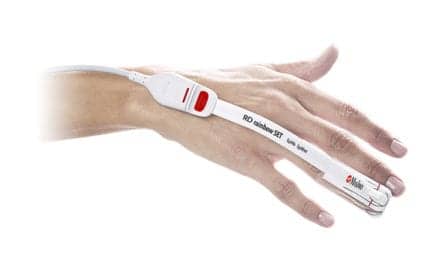Building on their successful partnership providing medication adherence solutions to high-acuity patients in the US, Royal Philips and Spencer Health Solutions will expand their partnership to Europe.
Technological solutions can help patients and their caregivers to improve medication plan compliance. Medication adherence reduces hospitalization, emergency department use and doctor’s visits of patients and thereby lessens this burden on healthcare systems leading to lower healthcare costs.1-2 Estimates suggest that nonadherence contributes to nearly 200,000 premature deaths in Europe and costs of EUR 125 billion annually in excess healthcare services for European Governments.2
“As health systems work to better manage high risk and high-cost patient populations, medication adherence solutions can help to improve medication management and increase patient engagement,” said Derek Ross, Business Leader Population Health Management at Philips. “Technological solutions can help our customers to improve medication adherence of their patients and to deliver better value-based care. We are excited to bring a user-friendly and patient-centric solution for medication adherence to Europe together with Spencer Health Solutions.”
Already in use by patients taking multiple medications in the United States and Canada, the Spencer Smart Hub is launching in selected markets in Europe including Austria, Belgium, Germany, Luxembourg, Netherlands and Switzerland, beginning with the Netherlands in the fourth quarter of 2019. The Spencer medication adherence solution is part of a portfolio of Philips solutions to support and remotely manage elderly patients in their homes and connect them with their care providers when needed.
“Through our partnership with Philips we can now jointly introduce our medication adherence solution into the homes of patients across Europe,” said Tom Rhoads, CEO of Spencer. “This expansion builds on our existing partnership in the US, which benefits care providers and patients by improving medication adherence. Our digital solution, that connects patients and care providers, supports the delivery of medicine and proactive care while driving down the costs of medical complications related to nonadherence.”
The Spencer device offers a connected ecosystem: an in-home dispensing device providing pre-packaged unit dose medication, a connection to the pharmacy and an assist app for family and caregivers. Family and caregivers are notified and able to contact the patient, when the patient does not take medication. The platform has high rates of medication adherence and patient engagement in the US. A case study shows an average adherence rate for patients using Spencer greater than 95%, and an average patient response rate to health status questions presented with medication dispenses greater than 81 percent.3
References
- Roebuck MC, et al, Medication adherence leads to lower health care use and costs despite increased drug spending. Health Affairs, 2011, Jan;30(1):91-99.
- OECD (2018) Investing in medication adherence improves health outcomes and health system efficiency – Available at: http://www.oecd.org/officialdocuments/publicdisplaydocumentpdf/?cote=DELSA/HEA/WD/HWP(2018)2&docLanguage=En Last accessed: 13 September
- Spencer whitepaper









